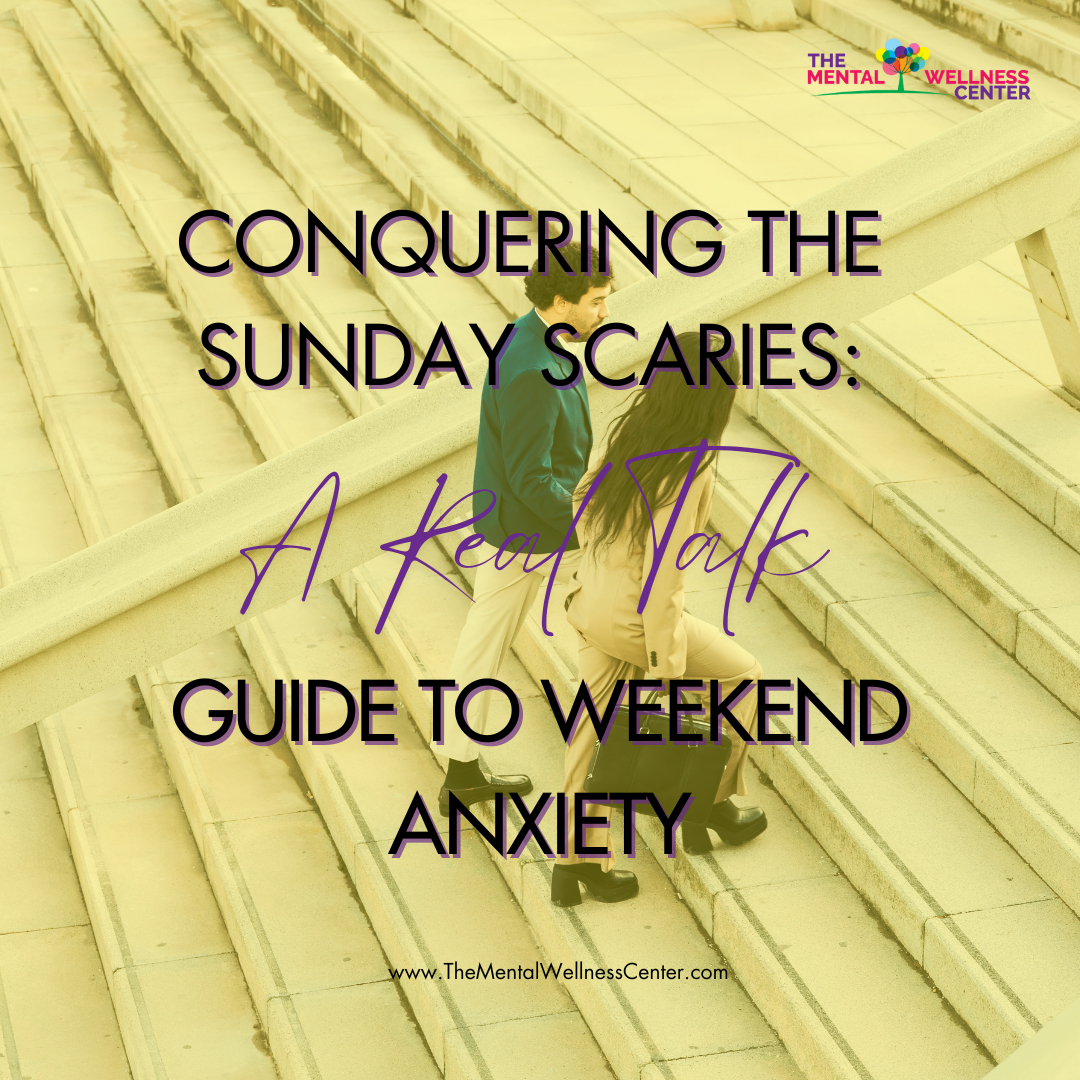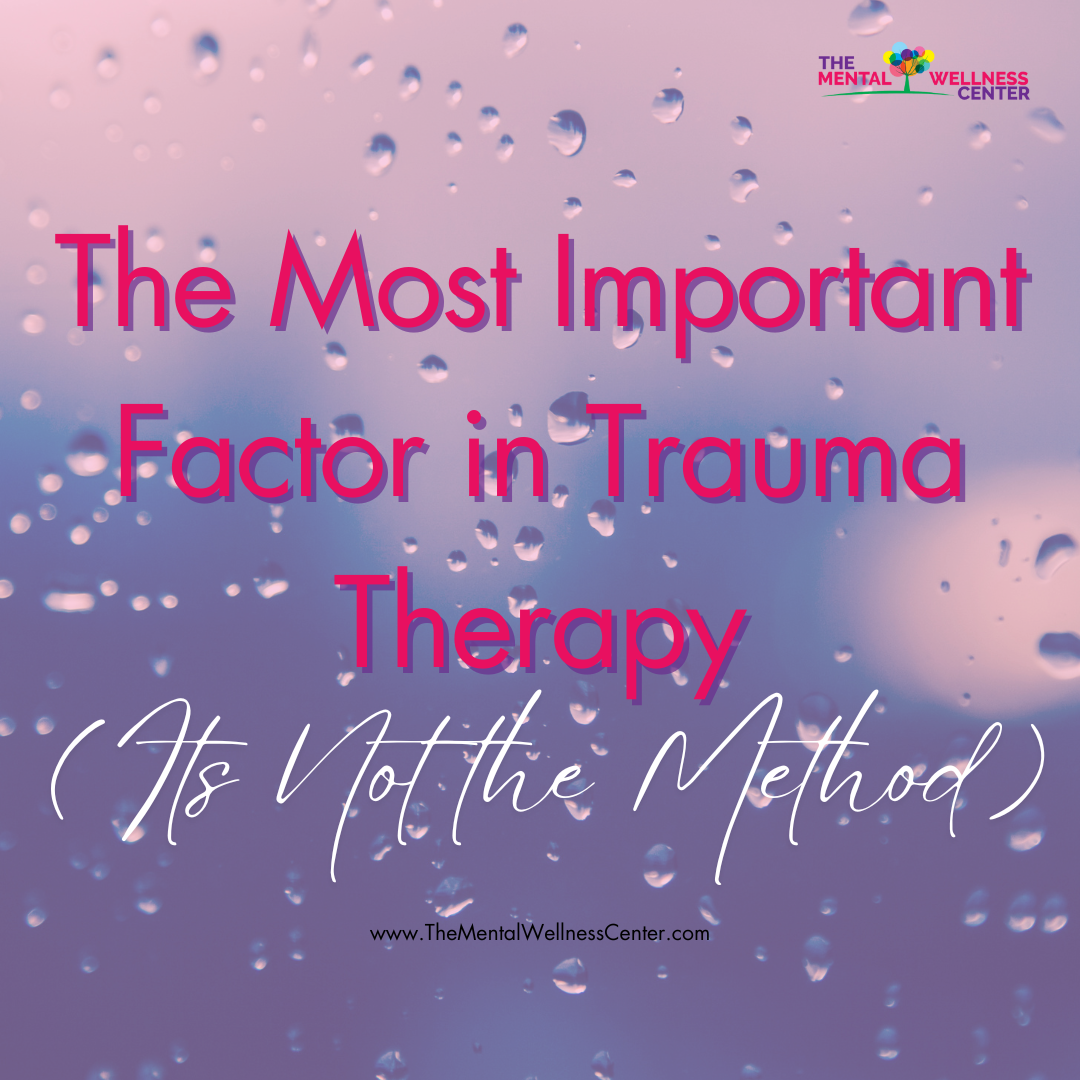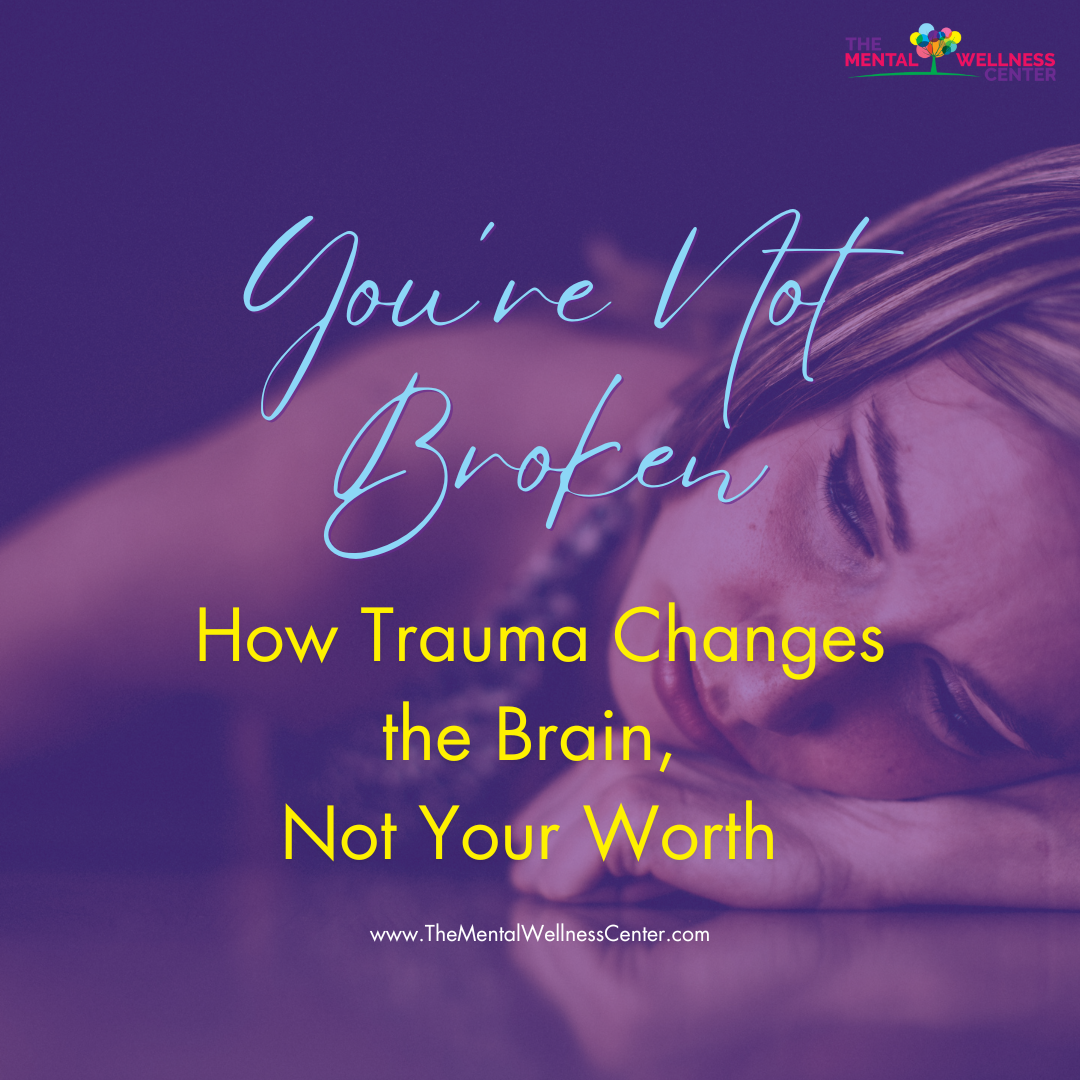
Embark on Your Journey to Inner Peace:
Learn From Experienced Therapists as They Share Empowering Strategies for Mental Wellness on Our Blog

How To Utilize Music in a Therapeutic Way
When we listen to music, our brain can increase dopamine (the feel-good chemical), lower cortisol (the stress hormone), and boost serotonin (which helps regulate mood). This can create an emotional shift without any extra effort.

When Sleep Feels Impossible: Understanding Neurodivergent Insomnia
It’s 2:17 a.m., and you’re wide awake, again. You’ve already cycled through all the usual tricks: the weighted blanket, the magnesium supplement your doctor recommended, even that quirky 4-7-8 breathing technique your friend swore by. And yet, your brain’s on a three-year highlight reel of awkward conversations and existential dread.

Conquering the Sunday Scaries: A Real Talk Guide to Weekend Anxiety
Sunday anxiety is basically your nervous system sounding the alarm before Monday even shows up. It’s that creeping dread, the mental noise that builds as the weekend winds down. For some people, it’s just a low buzz of unease. For others, it’s a full-blown anxiety spiral. Either way, it's your mind trying to brace for impact, and often, it overshoots.

The Most Important Factor in Trauma Therapy (It’s Not the Method)
Trauma doesn’t just live in thoughts; it lives in the body. It distorts how you see the world, how you relate to people, and how you respond to even the tiniest signs of danger. When your nervous system is stuck in fight, flight, or freeze, no amount of logic or insight can convince your body it’s safe. That’s why trauma therapy has to go deeper than surface-level tools. And it’s why feeling safe with your therapist is essential.

How to Create and Keep Meaningful Plans at the Start of the Year
Starting fresh is more than a resolution. Learn how to create and maintain meaningful plans, especially if you are neurodivergent, and turn them into consistent steps all year long.

How Stress Impacts the Body
Stress is something everyone deals with, whether it’s from school, work, money, or relationships. A little stress every now and then isn’t necessarily bad, as it can help us focus or push through a tough situation. However, when stress sticks around for too long, it starts to affect the body in ways we don’t always notice right away. Here are ways to deal with it.

The Most Important Factor in Trauma Therapy (It’s Not the Method)
The heart of trauma therapy isn’t in the techniques—it’s in the relationship. Healing happens when you feel truly seen, safe, and understood. A good therapist builds trust slowly, moves at your pace, and helps your nervous system learn that safety is possible again. Over time, that connection ripples outward, changing how you relate to others and to yourself. Real healing isn’t about fixing who you were—it’s about becoming someone who feels safe, worthy, and whole.

The Hidden Enemy: How to Spot and Heal Shame (And Why You Need the Right Therapist)
Shame, a tricky and often unseen emotion, is the belief that "I AM bad" and unworthy of connection, unlike guilt which focuses on a specific action ("I did something bad"). This feeling—which thrives on secrecy and often stems from early experiences—can manifest as being overly self-critical, constantly comparing oneself to others, and struggling to accept compliments or set boundaries. Healing shame requires more than just changing thoughts; it involves Body, Brain, Belief, and Relationship Work to calm the nervous system and change old patterns. For effective recovery, it is crucial to work with a shame-informed therapist who provides a non-judgmental, safe space, is attuned to your pace, and has done their own healing work.

Rebuilding a Sense of Safety and Security
Traumatic and high-stress experiences often cause the nervous system to stay hyper-vigilant and anxious, keeping the brain on high alert even after danger has passed, which can interfere with feeling secure. Fortunately, the brain is also wired for healing, and reclaiming a sense of safety involves reconnecting to the self and the present moment. This process begins with developing self-awareness to identify triggers and somatic symptoms (like a racing heart), using practices such as body scans. Healing also requires building healthy boundaries and communication skills in relationships, cultivating self-trust by consistently meeting one's own needs, and utilizing grounding tools like mindfulness and movement to build internal calm and resilience.

Why Grief Feels So Lonely, And What Helps?
The death of a child is an unexpected societal anomaly that often plunges parents into deep isolation due to grief that is often disenfranchised (unacknowledged, especially for pregnancy or neonatal loss) and a disruption in their parental identity. This unique loss leads to social withdrawal as friends and family struggle, resorting to unhelpful platitudes that dismiss the parents' pain. Overcoming this isolation requires validation and connection—specifically empathy over sympathy—which can be found through peer support groups with other bereaved parents, engaging in commemorative practices, and seeking professional interventions to process their complex emotions and navigate their new life.

Healing Anxious Attachment
The anxious attachment style is characterized by a strong desire for closeness in relationships coupled with intense fears of abandonment, a need for constant reassurance, and a negative self-image, typically stemming from emotionally inconsistent childhood experiences. Healing this pattern—which is not a core trait but a learned response—begins with building self-awareness through tools like journaling and mindfulness, followed by regulating the nervous system through basic self-care and coping strategies. As awareness and regulation grow, individuals can establish healthy boundaries, cultivate secure relationships that balance closeness with independence, and move forward with self-compassion to achieve lasting change.

How to Support a Parent Who’s Grieving
Supporting a parent grieving the loss of a child requires consistent, empathetic action rather than searching for perfect words or attempting to "fix" their pain. The most essential support involves listening without judgment, acknowledging the horrible nature of their experience, and using their child's name to honor their memory. Practical help—like bringing a meal or running errands—is highly beneficial, as is respecting their unique grief process and remembering important dates. Furthermore, consistently checking in well past the initial period, using the language they use when discussing their child (especially in cases of early loss), and encouraging professional or community support are vital steps to help combat their isolation and overwhelming struggle.

Breakthrough Healing for High Performers: The Power of EMDR Intensives
Feeling secretly overwhelmed and anxious despite being a dependable, high-achieving individual, you may find that traditional weekly therapy isn't enough. The solution presented is an EMDR Intensive, which uses the evidence-based therapy, Eye Movement Desensitization and Reprocessing (EMDR), in extended, focused sessions (4 to 12 hours) to accelerate healing from trauma, emotional pain, and unprocessed memories. This format allows for continuous, deep therapeutic engagement, offering faster symptom relief and breakthroughs for busy professionals, trauma survivors, and anyone ready for significant change in a matter of days or weeks, rather than months.

Love Triangles: Exploring the Three Core Components of Love
Love isn’t just a feeling—it’s something we actively create and nurture. Psychologist Dr. Robert Sternberg described love as a triangle with three essential sides: intimacy, passion, and commitment. In this series, we’ll explore each one, starting with intimacy. Intimacy is more than closeness—it’s about feeling truly seen, understood, and accepted by your partner. Through small daily practices, curiosity, and the courage to be vulnerable, intimacy can deepen the bond you share and help your relationship grow stronger and more authentic.

Feeling It All: How Accepting Difficult Emotions Can Set You Free
Emotions, even painful ones like sadness, anger, or anxiety, are a natural part of being human—but avoiding them often leads to more distress. Acceptance and Commitment Therapy (ACT) teaches that by making space for our emotions without judgment, we build emotional resilience and flexibility. This doesn’t mean giving up or liking difficult feelings; it means learning to experience them, understand ourselves, and respond to life with intention rather than automatic reactions. With practice, acceptance promotes steadier moods, deeper self-awareness, and a more grounded, meaningful life. Support is available to help guide this process safely and compassionately.

The Unexpected Benefits of a Neuro-Affirming Assessment
A clear diagnosis can do more than guide treatment—it provides validation, reduces anxiety, and helps individuals understand their strengths and challenges. Recognizing that difficulties with focus, social interaction, or emotional regulation are rooted in neurodiversity, not personal failings, fosters self-acceptance and empowerment. With proper support, people can advocate for their needs, improve relationships, and achieve personal, academic, and professional growth. At The Mental Wellness Center, diagnostic evaluation begins in your first session, providing a foundation for tailored care and a stronger, more confident path forward.

You’re Not Broken: How Trauma Changes the Brain, Not Your Worth
If you’ve experienced trauma, you may feel confused, overwhelmed, or even disconnected—but these are normal, human responses to deeply distressing events. Trauma can leave lasting effects on the brain and body, often keeping us in a state of alert long after the danger has passed. These reactions aren’t signs of weakness—they are your body’s way of trying to protect you. Healing isn’t about “getting over it” or going back to who you were before. It’s about understanding your experiences with compassion, reconnecting with yourself, and moving forward with strength and support. Beyond Trauma: A Healing Journey for Women offers a safe, empowering space for women to heal together, with the reminder that you are not broken—you are worthy, and your healing is possible.

The Importance of Recognizing Your ADHD Child’s Strengths
Parenting a child with ADHD can be challenging, even when you’ve done all the research and know your child isn’t misbehaving on purpose. ADHD is a neurological condition—not a behavioral choice—and kids with it are often unfairly labeled or punished, which can worsen their symptoms and harm their self-esteem. Research shows that criticism can make things harder, while positive reinforcement and understanding go a long way. Parents can shift their mindset by seeing symptoms as part of the condition, offering rewards, and focusing on their child’s strengths. Helping your child recognize what they’re good at builds confidence and connection, making day-to-day life a little easier for everyone.

What No One Tells You About Grieving the Loss of a Child
Losing a child is a devastating and life-altering experience. It can feel like your world has collapsed, leaving you with overwhelming grief, guilt, and loneliness. The pain of missing your child never goes away, and life feels forever changed. Others may avoid talking about your child or say the wrong things, making it even harder. Grief isn’t a straight line—it’s messy, ongoing, and deeply personal. Milestones and reminders of what could have been can trigger waves of sorrow, but your love for your child remains. Even in their absence, you are still their parent. Support groups can offer a safe space to connect with others who truly understand, helping you feel less alone as you navigate this new reality.

Avoidance in Therapy
You’ve found a therapist, committed to sessions, and built trust—yet when it’s time to talk about the hard stuff, you just can’t seem to “go there.” If that sounds familiar, you’re not alone. This common experience is often rooted in avoidance, a protective response from your brain to shield you from overwhelming emotions. While it may offer short-term relief, long-term avoidance can lead to increased anxiety, depression, and feeling stuck. The good news? There are trauma-informed therapies like EMDR, ACT, and CBT that can help you work through avoidance gently and effectively. Read more to understand this pattern and how to move forward with compassion and support.
